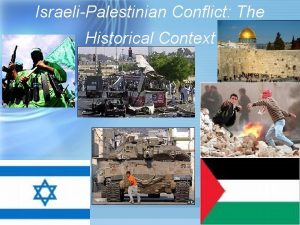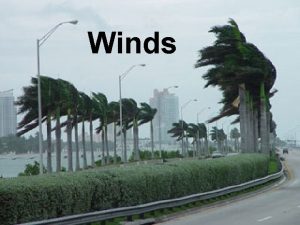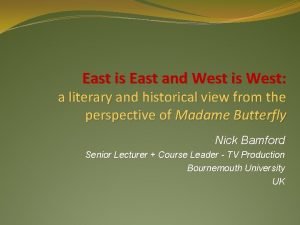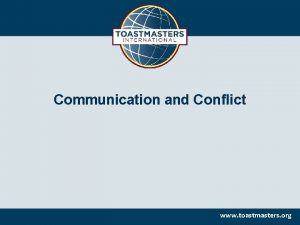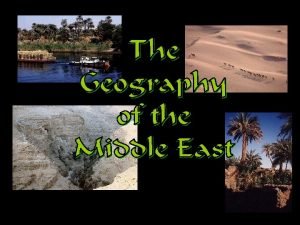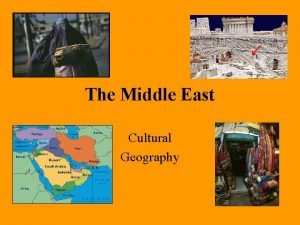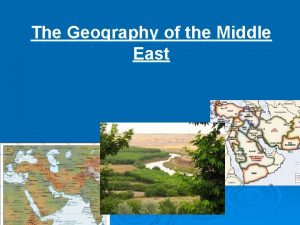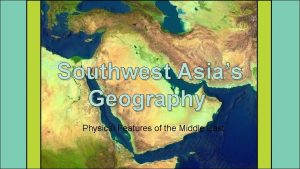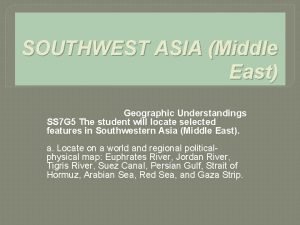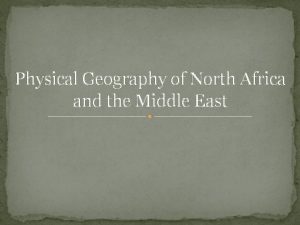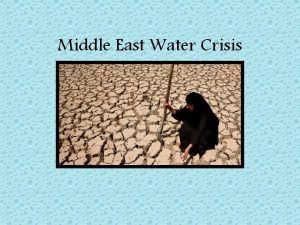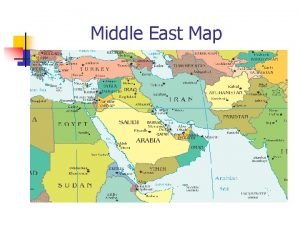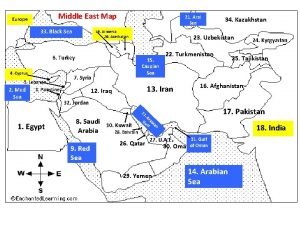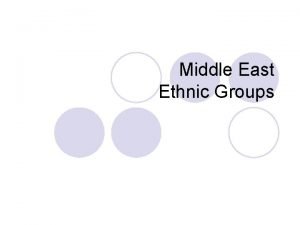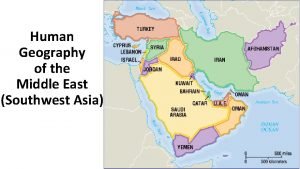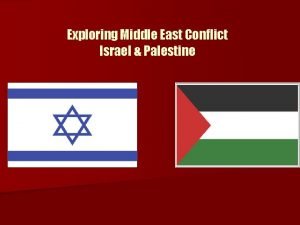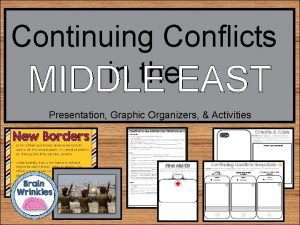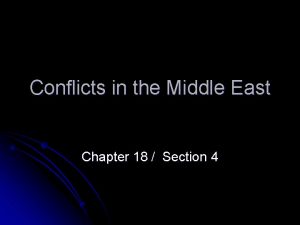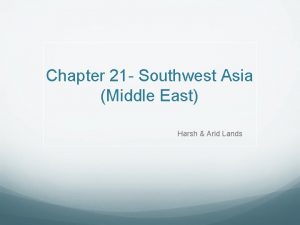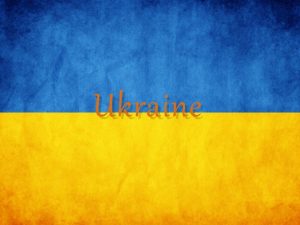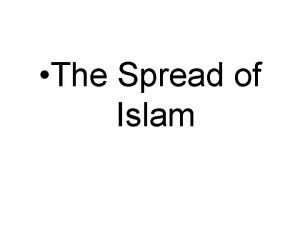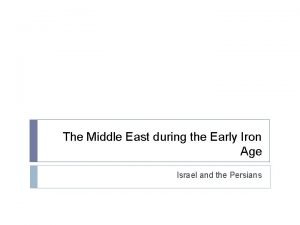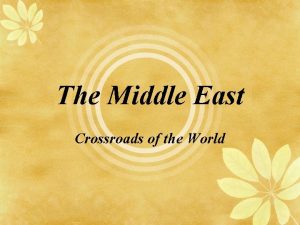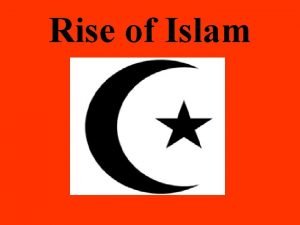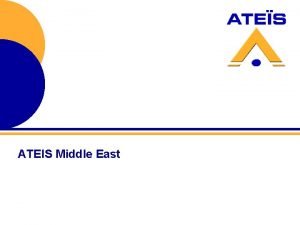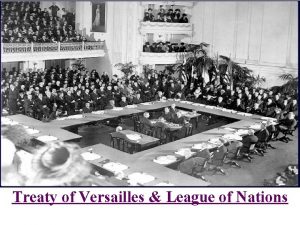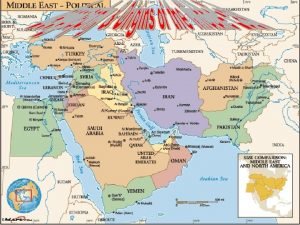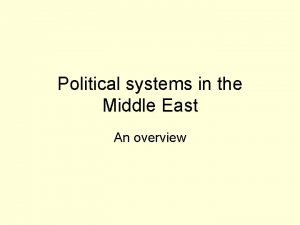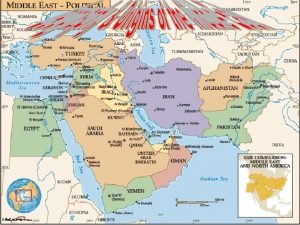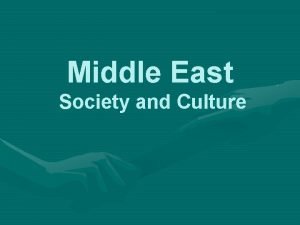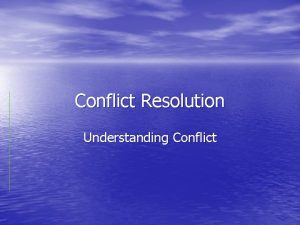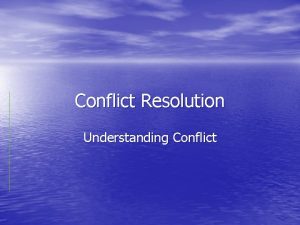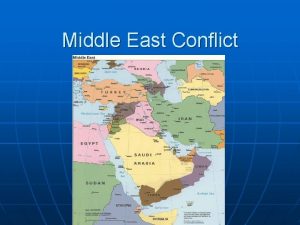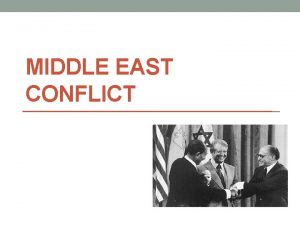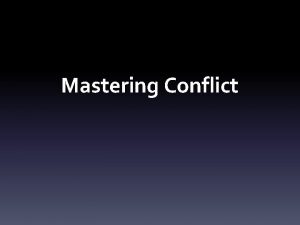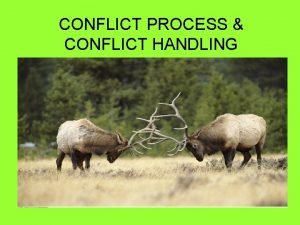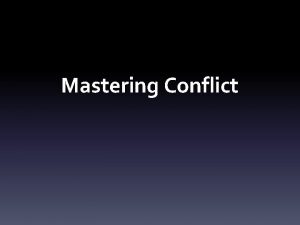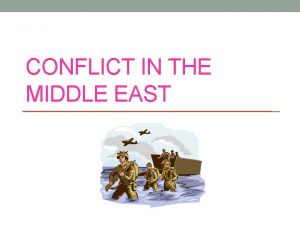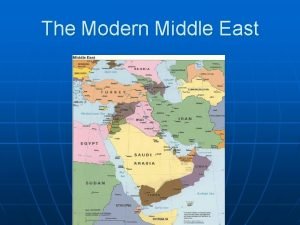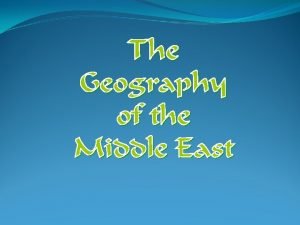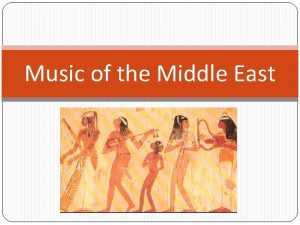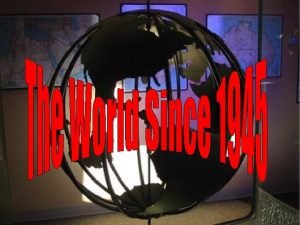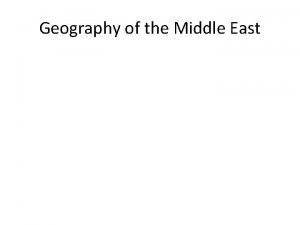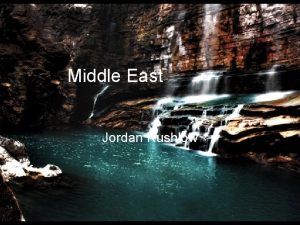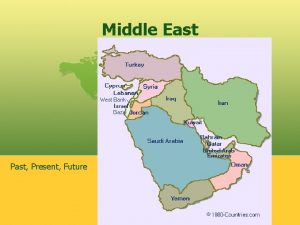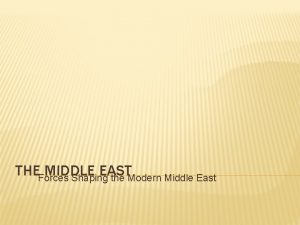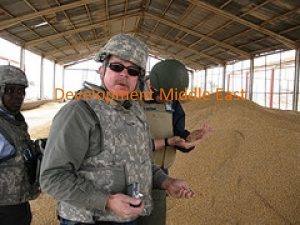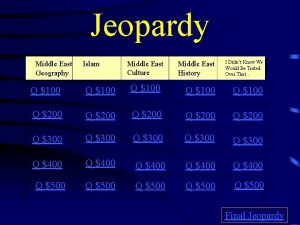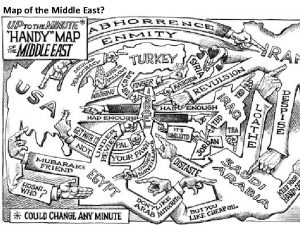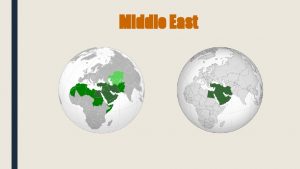The Middle East Outcome Understanding the Conflict Jerusalem




































- Slides: 36

The Middle East Outcome: Understanding the Conflict





Jerusalem

Understanding the Conflict 1. Setting the Stage Fact: History has shown that humans will fight and die for what they believe in a. b. Crossroads for three major religions Judaism: i. 1. Israel/Palestine lie in the heart of the promised land of the Hebrews Jewish temple in Jerusalem destroyed by the Romans 3. Jesus was Jewish 2.

Western Wailing Wall

Understanding the Conflict ii. Christianity Jesus was born in Bethlehem 2. Jesus lived in Nazareth 3. Jerusalem is site of Jesus’ crucifixion 1.


Understanding the Conflict Islam i. Mecca and Medina are in modern day Saudi Arabia 2. Dome of the Rock in Jerusalem site where Muhammad arose into heaven 1.

Israel and Palestine

Understanding the Conflict 2. Israel & Palestine: Conflict over land religion a. Palestine: i. ii. An area that today includes Israel and the Israeli-occupied Palestinian territories, as well as part of Jordan, and some of both Lebanon and Syria. Other names include Canaan, Zion, The Holy Lands b. Palestinians: Arabic-speaking people with family origins in Palestine ii. Mostly Muslim iii. Upset about Israeli control in Israel, West Bank, & Gaza Strip i.

Understanding the Conflict c. Israel: i. ii. The worlds only predominantly Jewish state, roughly 5. 7 million Jews Following the Holocaust, Jewish survivors sought refuge from Germany & Britain

Understanding the Conflict d. Conflict over land religion UN approved a partition of Palestine creating a Jewish and Arab state ii. Instead, the pre-Israel government, The Jewish Agency, declared independence on May 14, 1948 and named their country Israel iii. The following day, the armies of five Arab countries—Egypt, Syria, Jordan, Lebanon and Iraq—attacked Israel, launching the 1948 Arab-Israeli War iv. Jews and Arab Muslims in the region have disliked each other since i.

West Bank & Gaza Strip

Understanding the Conflict v. The West Bank and the Gaza Strip: West Bank was originally called Judea and Samaria ii. Under Israeli occupation since 1967: major cause of conflict i. iii. Islamic group Hamas now rules Gaza Strip. Israel Hamas left in 2005 Flag


Understanding the Conflict 1. US Involvement a. Afghanistan Then and Now i. Then: The Cold War ii. Soviets invaded Afghanistan in 1979; US protest by boycotting Moscow Olympics in 1980 iii. US secretly supplies Afghanistan freedom fighters with weapons (Film: Charlie Wilson’s War) iv. Afghanis were first country to beat the mighty Soviet Army v. Last Soviet troops left in 1989

Understanding the Conflict Now: The Taliban & Terrorism ii. The Taliban: Islamic Political Group that governed Afghanistan from 1996 -2001 when overthrown by US; Has revived since 2004 2. Very oppressive, especially to women 1. 3. Fighting against the US and others with US supplied weapons Supported by Pakistan and Iran but both countries deny involvement 5. Terrorism: Osama bin Laden was head of Islamic terrorist group al-Qaeda; primarily trained in Afghanistan 6. Al-Qaeda attacked US on 9 -11 -01 7. Osama bin Laden was shot and killed in Pakistan in 4.




George Bush Sr.

Understanding the Conflict b. Two Iraq conflicts i. The Persian Gulf War (Desert Storm) Aug 2, 1990 – Feb 28, 1991 1. Iraq invaded Kuwait 2. UN initiated a coalition force from 34 nations with purpose of expelling Iraqi forces from Kuwait 3. Kuwait was liberated in Feb 1991, however Saddam Hussein still ruled Iraq



George W. Bush

Understanding the Conflict ii. Iraq War March 2003 -Present 1. Sent in to find Saddam Hussein’s WMD; did not find any 2. Changed goal to “Liberate Iraq” 3. Found Hussein in a bunker; Iraqi’s put him on trial and executed him 4. Still fighting insurgents: soldiers loyal to Saddam’s army 5. Trying to install a democracy; takes time

Shock and Awe

Saddam’s Hiding Spot


Saddam Hussein after… � He put up no resistance although armed with a pistol. � "My name is Saddam Hussein. I am the president of Iraq and I want to negotiate, " he told the US troops in English, according to Major Bryan Reed, operations officer for the 1 st Brigade, 4 th Infantry Division.


Understanding the Conflict c. Iran: future enemy? i. President Mahmoud Ahmadinejad has not shown he is an ii. ally of America Ahmadinejad dislikes Israel and is a denier of the Holocaust (anti-semitic) iii. May be building nuclear weapons?

Understanding the Conflict � Result: Peace in the Middle East will not be easy to achieve. When cultures and religions clash, it becomes difficult to negotiate a compromise that satisfies all sides. With dictatorships and violent histories already in place, it may be a long time before the Middle East achieves peace.
 Debout resplendis car voici ta lumière paroles
Debout resplendis car voici ta lumière paroles Near east vs middle east
Near east vs middle east Jerusalem focus israelipalestinian conflict
Jerusalem focus israelipalestinian conflict The middle ages outcome the power of the church
The middle ages outcome the power of the church Horizontal movement of air
Horizontal movement of air East is east and west is west
East is east and west is west Understanding conflict resolution toastmasters
Understanding conflict resolution toastmasters Middle east latitude
Middle east latitude Cultural geography of the middle east
Cultural geography of the middle east Why is it called middle east
Why is it called middle east Inlet of indian ocean between africa and asia
Inlet of indian ocean between africa and asia Jordan river on map
Jordan river on map Physical geography of north africa
Physical geography of north africa Gope
Gope Middle east map
Middle east map Black sea on middle east map
Black sea on middle east map Ethnic groups in the middle east
Ethnic groups in the middle east Human geography of the middle east
Human geography of the middle east Middle east war
Middle east war Gosforth east middle school
Gosforth east middle school Conflicts in the middle east comprehension check
Conflicts in the middle east comprehension check Chapter 18 section 4 conflicts in the middle east
Chapter 18 section 4 conflicts in the middle east Chapter 21 section 2 climate and vegetation
Chapter 21 section 2 climate and vegetation Download biotime
Download biotime Where is ukraine located in europe
Where is ukraine located in europe Middle east before islam
Middle east before islam Iron age middle east
Iron age middle east Middle east crossroads of the world
Middle east crossroads of the world Middle east before islam
Middle east before islam Ateis middle east
Ateis middle east Treaty of versailles middle east
Treaty of versailles middle east 3 peninsulas in middle east
3 peninsulas in middle east Middle east political system
Middle east political system Physical geography of middle east
Physical geography of middle east Middle east background
Middle east background Middle east peninsulas
Middle east peninsulas Millet system
Millet system


